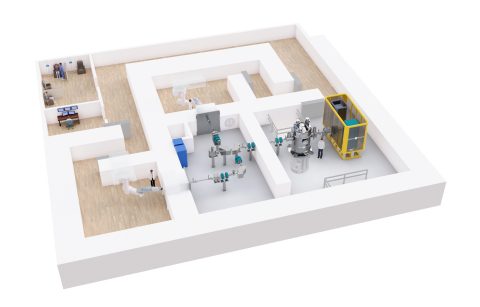October 27, 2020
TAE Life Sciences, a biologically-targeted radiation therapy company developing a breakthrough, accelerator-based boron neutron capture therapy (BNCT) system, today announced that it has entered into an agreement with National Center of Oncological Hadrontherapy (CNAO) to provide its Alphabeam™ Neutron System for the treatment of invasive, recurrent and difficult to treat cancers.
TAE Life Sciences notes BNCT research has demonstrated compelling results for some of the most difficult to treat cancers, including recurrent head and neck, glioblastomas and melanoma. This technique looks promising in treating cancer patients for whom other treatment options have been exhausted or unavailable.
“Our partnership with renowned CNAO underscores the growing momentum for the adoption of BNCT as a cancer therapy that delivers more precise targeted radiation to cancer cells while sparing surrounding healthy tissue,” said Bruce Bauer, Chief Executive Officer of TAE Life Sciences. “Our novel targeted boron-10 drugs that are in development and proprietary state-of-the-art accelerator-based neutron source have the potential to make BNCT a new pillar in cancer therapy and working with CNAO, a leading world cancer center, will enable us to further our goal of truly changing the landscape of cancer treatment.”
TAE Life Sciences patented neutron source has been specifically designed for clinical BNCT use in a hospital facility and produces low-energy neutrons that neutralize tumors containing accumulated boron-10, a non-toxic, non-radioactive isotope that when administered to a patient selectively collects in cancer cells. Because the boron-10 carrier drug is highly targeted to cancer cells, a patient can be treated in just one or two treatment sessions, without many of the side effects of traditional radiation therapy.
“The addition of the Alphabeam System is integral to our plans to expand our therapeutic reach and will enable us to conduct clinical BNCT research for the treatment of head and neck cancers, brain cancers like glioblastomas and malignant melanomas,” said Prof. Gianluca Vago, President of CNAO.
“The Alphabeam System will be installed alongside a new proton system to provide complimentary radiation therapy treatment. With the implementation of this new technology, and the collaboration of many institutions, like INFN and the University of Pavia among others, CNAO will be the unique facility able to combine treatments with protons, heavy ions (carbon ions and other species), and neutrons for BNCT. This partnership supports our vision of a multidisciplinary approach towards customized cancer therapy to benefit patients.”
